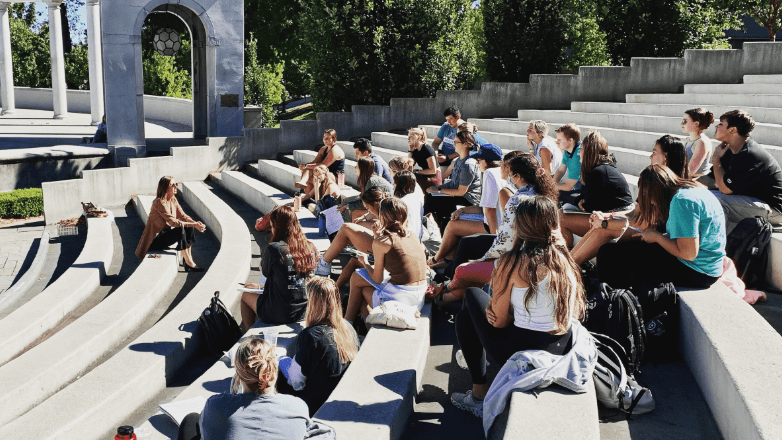FAYETTEVILLE, Ark. — News coverage of gender and race will be the focus of the 2016 Center for Ethics in Journalism Student Summit.
The event, “Covering Race and Gender in the New Millennium,” will begin at 2 p.m. Sept. 27 in Giffels Auditorium located in Old Main on the University of Arkansas campus.
“This event is part of our ongoing effort to raise awareness of sensitivity in reporting,” said Ray McCaffrey, the director of the Center for Ethics in Journalism.
The panel will feature Jesse Holland, the visiting distinguished professor of journalism ethics; Calvin White, the history chair who is also affiliated faculty in African and African American studies; and Lisa Corrigan, director of gender studies. Christi Welter, staffer with the Center for Ethics in Journalism, will moderate the panel.
Jesse Holland is the race and ethnicity reporter for The Associated Press covering the presidential election.
“Given the rise of social movements like Black Lives Matter, and the historic run of Hillary Clinton as the first major party female presidential candidate, it is the right time to talk about these issues,” Jesse Holland said.
Holland said he hopes the summit will give a broader view of the issues that go into making decisions that influence local, state and national reporting.
“By discussing these issues of race and gender publicly and often,” Holland said, “we can help bring a measure of authenticity to the social media, website, television, radio and newspaper worlds.
“It’s incumbent upon the journalism industry to be careful and fair with its coverage, and that coverage more and more includes issues of race, ethnicity and gender,” Holland said.
The panel will analyze coverage of recent events including the presidential campaign, passing of gender-specific bathroom laws and Black Lives Matter protests.
“Journalists have an ethical responsibility to avoid perpetuating both racism and sexism,” Lisa Corrigan said.
Corrigan, who conducts research and teaches at the intersection of race and gender, said she saw the summit as a good opportunity to explain to young journalists how their work “influences readers’ perceptions of reality.”
“From the Ferguson protests to the presidential election most of the coverage of issues where race and gender are prominent features is incoherent and incomplete,” Corrigan said.
Calvin White said that it is important to educate journalists to keep coverage of issues honest.
White said the media environment has changed, and it is no longer “your father’s Walter Cronkite,” reporting of events.
“It is important students understand the role of media today,” White said. “Students have to decide if they want to be journalists or cable news superstars.”
Journalism professor Lucy Brown said she plans to encourage her students to attend because it “is very relevant to their education, irrespective of their discipline.”
Brown, who serves on the journalism department diversity committee, said young journalists need to develop the skills to do their job amongst people who do not belong to their social group.
“Since journalism is indispensable to having a strong democratic society,” Brown said, “if young journalists are uncomfortable with gaining, creating or presenting the views of racial minority groups, for example, then democracy suffers.”
Brown said summits like these give professors and students a venue to have discussions on difficult topics.
“Given the line-up of speakers, I anticipate that students will be exposed to several thought-provoking presentations,” Brown said.
The summit will include an open question-and-answer portion, and is free to the public. More information can be found by visiting the 2016 Student Ethics Summit Facebook event page.
